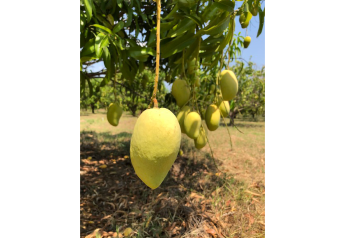FDA proposes heightened traceability rules for certain produce

The Food and Drug Administration has proposed new traceability rules that seek elevated record-keeping for many fresh produce items, from all fresh-cut products to leafy greens and tomatoes.
Starting Sept. 23, there will be a 120-day public comment period on the new rule through the Federal Register. A draft is available for viewing until then. The rule is a key component of the FDA’s New Era of Smarter Food Safety and implements the long-awaited Section 204 of Food Safety Modernization Act.
Frank Yiannas, FDA deputy commissioner for food policy and response, said the agency seeks to harmonize and standardize record-keeping process to ease investigations. The FDA will still allow paper records, but all companies in the supply chain should be able to submit an electronic spreadsheet containing traceability information within 24 hours.
“More generally, the FDA encourages all food businesses to maintain their traceability records electronically whenever possible, to expedite the identification of traceability information when needed to address threats to public health,” according to an FDA news release.
Yiannas acknowledged that many in the produce industry have adopted voluntary traceability standards, whether through the Produce Traceability Initiative or the California/Arizona Leafy Greens Marketing Agreement.
But the current one-step forward, one step back requirement, is lacking, according to the FDA.
“These requirements form a baseline for traceability recordkeeping, but they provide limited information to effectively and rapidly link shipments of food through each point in the supply chain,” according to the FDA release. “This — and the fact that recordkeeping systems can be largely paper-based and lack a universal lexicon throughout industry — can make it difficult to trace a product to its original source when necessary.
Formerly referred to as “high-risk foods,” the Food Traceability List includes these items — and any items made with them:
- Cucumbers, all varieties;
- Fresh herbs, all varieties;
- Leafy greens, including all lettuces and kale, chicory, watercress, chard, arugula, spinach, pak choi, sorrel, collards, and endive;
- All melons, including watermelon, honeydew and cantaloupe
- Peppers, all varieties;
- Sprouts; all varieties;
- Tomatoes; all varieties;
- Tropical tree fruits, including mangoes, papayas, lychees, starfruit and guavas; and
- Fresh-cut fruits and vegetables.
The FDA is highlighting what it calls Critical Tracking Events (CTEs), which includes growing, receiving, transforming (fresh-cut), and shipping. For each CTE, the FDA wants entities to maintain records (known as Key Data Elements/KDEs) including:
- Traceability lot code;
- Date the product was received;
- When it was shipped; and
- A description of the product.
“In addition, those subject to the rule would also be required to create and maintain records related to their internal traceability program, which would help regulators better understand a firm’s recordkeeping practices and traceability operations,” according to the release.
The industry will become familiar with the new terminology (CTE, KDE); Yiannas said a big step to standardization is a common language shared by all in the supply chain.
According to a statement from the California LGMA, it and its sister organization in Arizona appear to be in compliance with the proposed FDA rules.
"We want to assure our customers and consumers that members of the Leafy Greens Marketing Agreement are already required to have traceback systems in place,” according to the statement. “This has been part of the LGMA requirements since the organization was formed in 2007.
“As with any other aspect of our program, the LGMA is committed to making any necessary improvements to protect consumers,” according to the LGMA’s statement.
Related stories:
New Era of Smarter Food Safety is upon us
California LGMA survey looks at members’ traceability plans
Groups urge FDA to require better traceability for leafy greens







